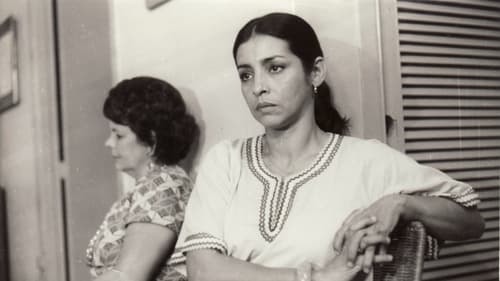
Melón

Alfredo
Alfredo for years has dreamed of living the exciting adventures he reads in the National Geographic magazine. Now that he is an old man, he believes that his dream has failed, but one day he discovers an article that will change his mind.

Vendedor de Tomates
Directed mainly for kids, the film speaks of a Havana that reveals two distinct faces, from the everyday life of a couple of kids.

Esteban

Germán
A story of survival and triumph of the human spirit.

Armando

Three crooks in Havanna plan the bankrobbery of a lifetime

After two years in jail, El Isleño returns to the island of La Fe, ruled by the dictator Francisco Gavilán. He arrives with a cinematograph and exhibits "Robin Hood" to the people. The next day the bridge that communicates La Fe to the mainland has been destroyed, and the people plan to overthrow Gavilán.

A satire about the life of the Cuban people. Alicia, a culture instructor, is sent to a small town "Maravillas", which is itself an exaggerated, but very ingenious reflection of the real Cuba. The adventures that she has there are almost as crazy and senseless as the ones lived by the other Alice (in Wonderland), reflecting the indoctrination, coercion, absolutims, and many other everyday problems in Cuban society.

Tomas
A superstitious middle-aged woman falls in love with a taxi driver, while trying to learn the identity of the unseen person tossing eggs at her.

It reflects the transformation which a woman undergoes in the crisis of personal fulfillment that her husband is going through. In the middle of a complex process, marked by contradictions and failures, she will grow and express her independence as a human being. She will be another woman, determined to continue the difficult and unknown daily struggle.

The first years of the Cuban Revolution characterized by social transformations and class struggles.

Teresa is overwhelmed: with a husband, three young sons, a job as a crew leader in a textile factory, and volunteer commitments as cultural leader of her union. Her husband, Ramón, wants more of her attention; her feelings are mixed, wanting domestic peace, feeling responsibilities to the revolution, and wanting to control her own life beyond doing dirty dishes. They separate; he begins an affair. When he wants a reconciliation, she asks what his response would be if she'd had an affair too. "But men are different," is his reply. He's failed her test, and to hold on to independence and self-respect, she remains uncompromising and hard-edged.

Set in the early 1900s, this film charts the rule of a Latin American dictator as he moves from being a charming despot to a tyrannical ruler before he is finally ousted, only to die in obscurity in Paris. Early in his regime, the resources and agricultural products his country sells command high prices, and he is a reasonably confident, even gentle, ruler who likes to take long vacations with his daughter in Paris. After World War I, with falling prices and a number of coup attempts behind him, his rule becomes quite cruel.

In 1672 Cuban revolutionaries launch an uprising against the Spanish who are occupying the country.

Lino
This Cuban feature examines the circumstances arising out of a woman's claim to have seen the Virgin Mary and to have been healed by waters from a nearby stream. In an accelerating storm of cynical opportunism, her sincere beliefs are exploited by businessmen, politicians and military men. Rival groups compete to exploit the hysteria the vision causes, and the chaos culminates in a revolution. Striking imagery and skillful camerawork enhance this feature.

Cuban peasants wield machetes in a violent uprising against Spanish authorities in the late 19th century.









